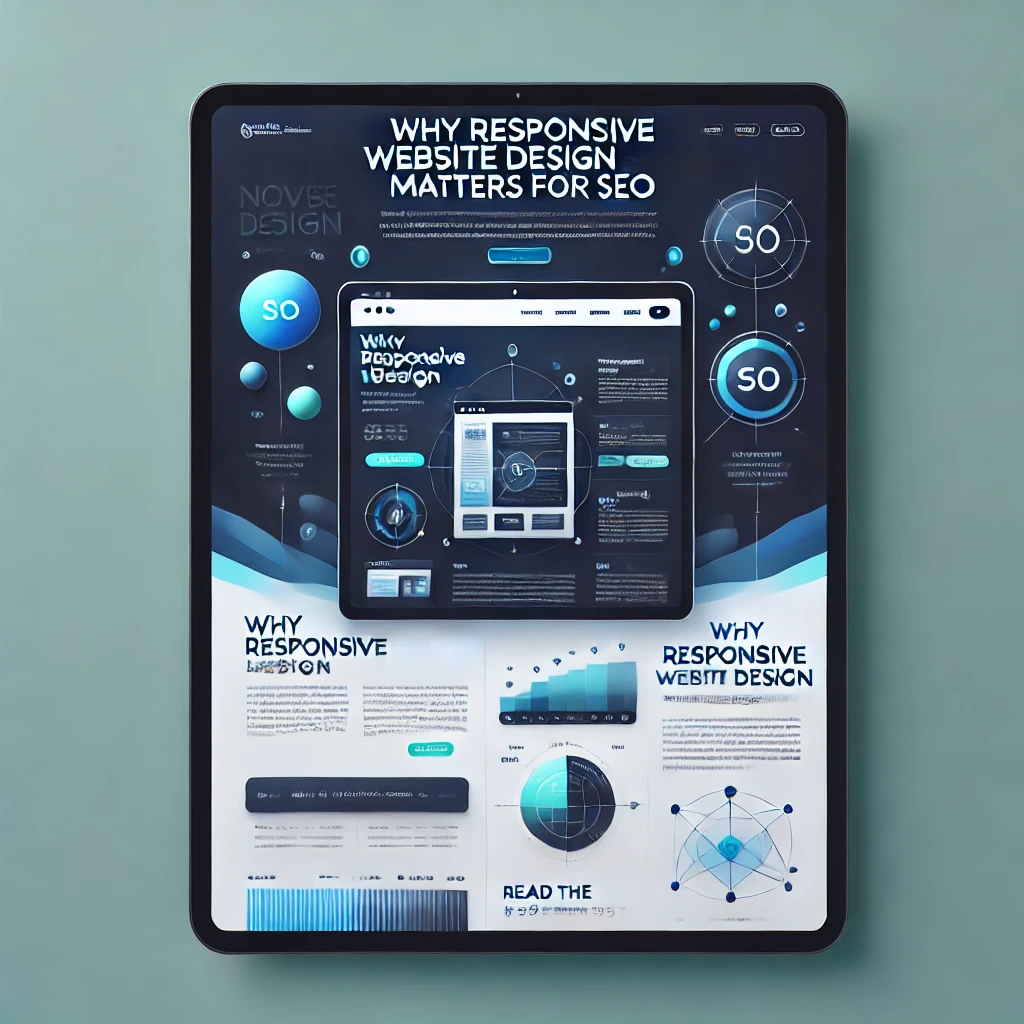Why Responsive Website Design Matters for SEO
Responsiveness for SEO

In today’s digital world, having a website that looks great on any device is no longer optional—it’s essential. Responsive website design ensures that your site adapts seamlessly to desktops, tablets, and smartphones. But beyond aesthetics and user experience, did you know that responsive design directly impacts your search engine rankings? In this post, we’ll explore why mobile-friendly design is critical for SEO and how it can help your business attract more leads.
1. Google Prioritizes Mobile-Friendly Websites
Google has made it clear: mobile-friendliness is a major ranking factor. With its mobile-first indexing, Google primarily uses the mobile version of a website for indexing and ranking. This means that if your site isn’t responsive, it could rank lower in search results, making it harder for potential customers to find you.
SEO Benefit: Websites that offer a seamless mobile experience are more likely to rank higher on search engine results pages (SERPs), increasing visibility and organic traffic.
2. Improved User Experience Reduces Bounce Rate
A responsive website provides a better experience for users by automatically adjusting to their screen size. This improves navigation, readability, and interaction, keeping visitors engaged longer.
SEO Benefit: A lower bounce rate (the percentage of users who leave after viewing just one page) signals to search engines that your website provides valuable content, which can positively impact rankings.
3. Faster Load Speeds Boost Rankings
Page speed is another critical SEO factor, and responsive websites tend to load faster on mobile devices. Slow-loading sites frustrate users and can lead to higher bounce rates.
SEO Benefit: Google favors fast-loading websites. A mobile-optimized site improves performance, leading to better rankings and a smoother user experience.
4. One Website, One URL—Better for SEO
Responsive design eliminates the need for separate mobile and desktop websites, meaning you have a single URL for all users.
SEO Benefit: Having one URL simplifies link-building efforts, avoids duplicate content issues, and makes it easier for Google to crawl and index your site.
5. Higher Conversion Rates and More Leads
When users have a seamless browsing experience, they’re more likely to stay on your site, explore your content, and take action—whether that’s making a purchase, filling out a contact form, or signing up for a newsletter.
SEO Benefit: A well-optimized, responsive site encourages user engagement, which can lead to more conversions and business growth.
Conclusion
A responsive, mobile-friendly website is no longer just a nice-to-have—it’s a must for SEO and business success. By ensuring your site is adaptable, fast, and user-friendly, you can improve your search rankings, reduce bounce rates, and attract more leads.
Need help optimizing your website for SEO? Contact Blue Hole Design today to create a stunning, responsive website that drives results!


